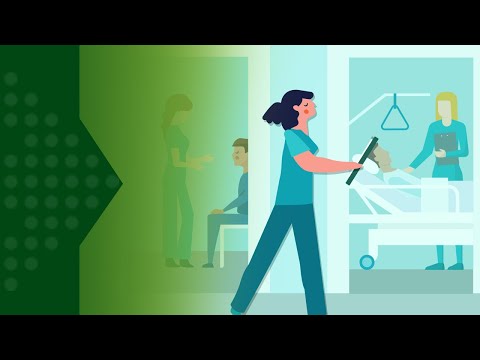What Skills Do You Need to Be a Medical Assistant?
Contents [show]
Medical assistants play a vital role in the healthcare industry. They perform a variety of tasks to support doctors and other medical professionals.
If you’re thinking of becoming a medical assistant you might be wondering what skills you need. Here’s a rundown of some of the most important skills you’ll need to succeed in this career.
Checkout this video:
Communication skills
When working as a medical assistant excellent communication skills are essential in order to effectively communicate with patients, doctors, and other medical staff. You will need to be able to communicate clearly and concisely in order to relay information accurately, and you should also be able to listen attentively in order to accurately understand instructions.
Organizational skills
Organizational skills are essential for Medical assistants They need to be able to keep track of patients, appointments, and medical records They also need to be able to handle multiple tasks at the same time and stay calm under pressure.
Interpersonal skills
As a medical assistant, you will be the liaison between the doctor and the patient. It is essential that you have excellent interpersonal skills in order to build trust and rapport with patients, as well as to be able to effectively communicate with doctors. You will need to be compassionate and understanding, as well as efficient and organized.
Technical skills
A medical assistant is a member of the healthcare team who performs both clinical and administrative tasks in a medical office setting. As a medical assistant, you will need to be proficient in a number of technical skills, including:
-Vital Signs: Medical Assistants must be able to take and record patients’ vital signs, such as blood pressure, temperature, pulse, and respiratory rate.
-Injections: Many medical assistants are trained to give injections. Injections are usually given intramuscularly or subcutaneously, but medical assistants may also give intravenous injections under the supervision of a licensed healthcare professional.
-Specimen Collection: Medical assistants may be responsible for collecting specimens, such as urine or blood samples, for lab testing.
-EKGs: An EKG (electrocardiogram) is a test that measures the electrical activity of the heart. Medical assistants may be responsible for administering EKGs.
-Phlebotomy: Phlebotomy is the process of drawing blood from a patient. Medical assistants who are trained in phlebotomy may be responsible for drawing blood for lab tests or blood transfusions.
Computer skills
In order to be a successful medical assistant, you will need to have strong computer skills. Medical assistants must be able to type quickly and accurately, as well as navigate electronic Medical records systems. In addition, medical assistants may be responsible for scheduling appointments and handling billing and insurance paperwork, so strong administrative skills are also a plus.
Medical knowledge
In order to be a medical assistant, you will need to have a good understanding of basic medical procedures and terminology. You should be able to communicate effectively with both patients and medical staff. You will also need to be able to keep accurate records and handle scheduling.
people skills
One of the most important skills medical assistants need is excellent people skills. Medical assistants interact with patients more than any other type of health care worker, so it’s essential that they be able to put people at ease, explain procedures, and provide comfort and support. They also need to be able to work well with other health care providers, such as doctors, nurses, and office staff.
Stamina
Although a medical assistant’s job is to help patients and doctors, it is a very demanding job that requires stamina. Medical assistants need to be able to handle stress, have excellent people skills, be well organized and detail oriented. They also should be able to lift at least 25 pounds.
Flexibility
One skill that is important for medical assistants is flexibility. This means having the ability to adapt to different situations and handle change. For example, medical assistants might need to reschedule appointments when a doctor is running behind or help with a procedure that is not part of their usual duties. Being flexible helps medical assistants provide the best possible care to patients.
Critical thinking
As a medical assistant, you will often be required to make decisions quickly and without guidance. This means that you need to be able to think critically, weighing the pros and cons of each option before choosing the best course of action.







